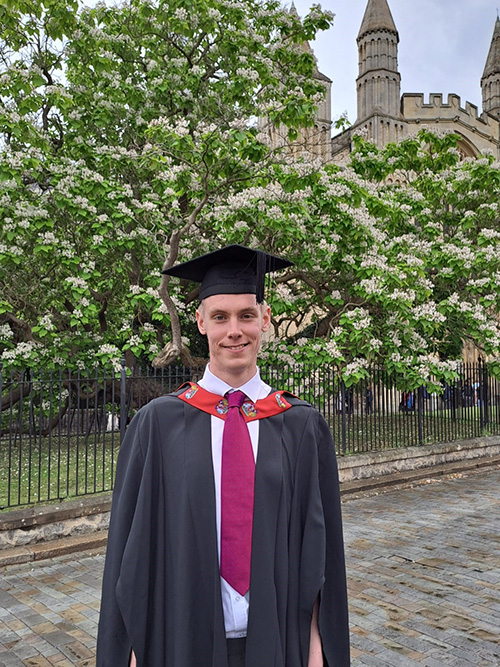
Discover your passion and start your journey
In September 2019, I began studying the International Baccalaureate Career-Related Programme (IBCP) at the Aylesford School Sixth Form. I took time to consider what I would love to be doing in the future, and what profession would always be in demand. Given my passion for biology, the massive call upon scientists throughout the pandemic, and my desire to help others, a degree in biomedical science caught my attention, and further research allowed me to uncover that this degree would prepare students for a specific career, working as a Biomedical Scientist. Learning about this profession and the pivotal role it plays in disease diagnosis as part of patient healthcare committed me to pursuing it.
Wanting to stay at home whilst studying, I did some research into local universities offering the degree. I was impressed by the University of Greenwich’s website, especially the BSc Biomedical Science page that outlined the course and gave detailed insight into what I would be studying for each module. Following the submission of my application, I was offered a conditional place. I then accepted this place upon successful completion of the IBCP.
In my first year, I built a sound understanding of the normal functioning of the human body. In my second and third years, I was able to delve into what really interested me – how this can go wrong, i.e. diseases.
One of the major advantages of the course was that it guided me to investigate diseases from the perspective of all pathology disciplines, including biochemistry, histology and cytology, haematology and blood transfusion, immunology, and microbiology. The best part of studying at Greenwich were the laboratory practicals, which were an opportunity to put theory into practice and were well-organised by the technicians and demonstrators, who were available to assist with any queries or concerns.
Become a prize winner on your graduation day
Throughout my degree, I was met with many challenging topics and assignments, but what always motivated me was envisioning myself on graduation day. Thankfully, my hard work paid off and resulted in the achievement of a First Class Honours along with two awards: the Royal Society of Biology Prize for Best Performing Student in the Biosciences, and the Science Award for Best Overall Performance at Undergraduate Level.
When it was announced at the graduation ceremony that I had achieved these awards, I was overjoyed. I felt as though the countless hours of work that I had invested at my desk studying were being formally recognised. It was an honour to receive them.
With the IBMS accreditation attached to Greenwich’s Biomedical Science course, I now meet all the academic requirements needed to apply for Trainee Biomedical Scientist positions, which lead into attaining state registration as a Biomedical Scientist. Moreover, with the mindset and skills I have developed at University, I am well-equipped to continue my studies alongside employment, which will hopefully lead to completion of IBMS qualifications that will further my career.
Benefit from great resources and support at Greenwich
My advice to new students would be to truly immerse yourselves in the course content, by which I mean that in addition to attending lectures, supplementary material should always be consulted. For me, this was reading textbooks – I found textbooks in the Drill Hall Library guided me through my course material in a user-friendly way, often assuming no prior knowledge of the topics covered. I discovered that investing the time to read and understand them more than pays off. This extra effort will transpire into increased understanding of lecture content and will drastically improve performance in assignments.
But, most important of all is to not run before you can walk. In other words, trying to understand complex content that you simply do not have the foundational knowledge for will likely lead to failure. Thus, always go back to basics if needed, and build up from there. Good luck!



